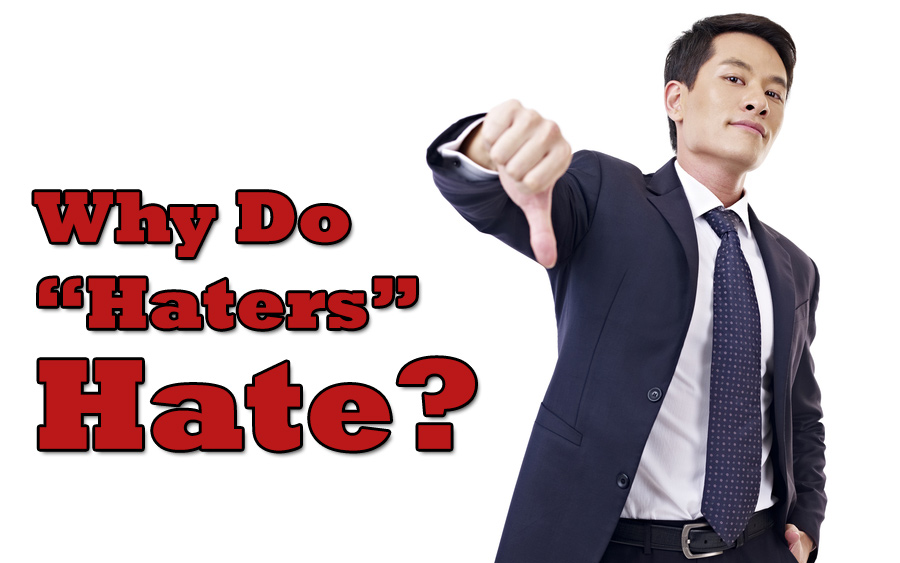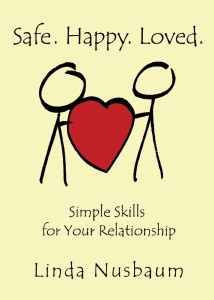I used to bristle when I would hear the word hater. It felt so sharp, and yet so accurate. I have even used it once or twice to disparage a group in opposition to a particular position. But I didn’t really feel good using that word or lining up against any person or group when I did use it.
As a therapist, I am always trying to understand feelings. In my work with people who have difficulty I try and understand motivations and feelings that might give me insight to how the person might be experiencing events in their life. So when I think about “haters” I consider these elements to help me understand why people hate and why hating has become so commonplace.
When we rail against someone or something we are protecting something inside us that we care deeply about. Some people will fight to the death to protect an idea or thought or position. I believe the fighting and the hating mask the real desire to be understood and maybe taken care of.
Hating Isn’t a Natural State

Humans are NOT naturally haters. We are all born to love. All babies know this. And most adults when they see a baby or a puppy can’t help but get pretty soft inside. We can’t help it because this is our TRUE nature.
Unfortunately life experiences, sometimes harsh ones, make all of us create barriers against pain or perceived pain so we won’t get hurt. Most people have their shields up to protect themselves from hurt. This armor is important to keep people safe from something unexpected and possibly harmful. Unfortunately, it also cuts off connections with other people and that can be painful too.
To be truly at ease in our lives it is important for individuals to come out from behind the barriers and connect with others. That is a natural state for all humans, connecting with other people in harmony. In African there is even a name for this condition. It’s called Ubuntu, and it means to be in harmony with another. It also means we as people can’t be human alone. The concept of being alone and disconnected from others is actually a foreign state of being.
What Makes a Hater?
So when I think of “haters” I see them as being alone. They are strong in projecting what they believe isn’t right. And in their forceful nature they may even have like-minded followers. But when we are against something, we are not standing up for what we need. We are just telling someone what we don’t like or want.
It takes courage to stand up for what we want. And that courage can also be called self esteem, and that’s what’s missing from those that hate.
Where Does Hate Come From?

When I am against something it’s because my needs haven’t been met. I have not been taken care of in the way I expected, I wasn’t attended to the way I thought I should be, people didn’t pay attention to me the way I wanted, I wasn’t taken care of to my satisfaction. Maybe I felt mistreated and my feelings got hurt. Maybe I felt rejected and unloved. If I felt bad because something happened to me, I know I will feel better if I can figure out what happened and understand how my feelings got hurt.
Then I might have some understanding of what happened to cause me pain. Once I know that, I might be able to figure out what I need. And it might sound like, “I would like you to listen to me. I have something important to say,” or “I felt sad when you forgot to mention me. I felt left out when you didn’t ask me to join you.”
Communicate to Stop the Hate
Then you add what you want from the person and that could sound like this: “I would like you to understand my feelings. I would like you to remember to include me. I would like you to listen to me.”
These are requests to get what would make you happy. This is called self advocacy, where you take responsibility for getting what you want. This is the key to ease in the world. Not hating others, asking for what we need. Not demanding it, requesting it.
Emotional pain drives people to blame others and fight. Understanding emotional pain, determining what happened, and asking for what you want is the only true route to peace. And that’s really what all of us are after, even the haters.
Don’t Just Leave it at “Later, Hater!”
Read a Book About Relationships
My new book, Safe. Happy. Loved. Simple Skills for Your Relationship may help you to discover yourself and can help you and your partner avoid locking into a pattern of mutual disdain. Give it a read, and understand where each of your are coming from. Compassion awaits.
Get Couples Counseling
Come in for couples counseling. Couples counseling can help you and your loved one get the most out of your relationship. It'll equip you with coping strategies and tools for communication that can help you argue less and love more.


